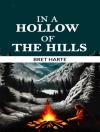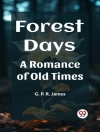In ‘The Ivory Trail, ‘ Talbot Mundy weaves a gripping tale set against the vibrant backdrop of early 20th-century Africa, where adventure, intrigue, and the quest for treasure converge. Mundy’s literary style is characterized by rich, evocative prose that captures the lush landscapes and complex cultures of the continent. The novel employs elements of adventure fiction intertwined with themes of imperialism and the ethical dimensions of exploration, reflecting the zeitgeist of an era fascinated with the mysteries of the African wilderness. The protagonist’s journey is not merely geographical, but also an exploration of moral dilemmas and the clash of civilizations, engaging readers in a deeper conversation about legacy and exploitation. Talbot Mundy, an English author and journalist, drew upon his extensive travels in the East, including the Middle East and Africa, which significantly informed his writing. His experiences as a soldier and a vagabond in these regions infused his narratives with authenticity and depth. Mundy was passionately interested in eastern religions and philosophies, which often permeate his works, enriching the texture of his storytelling and providing insight into the human condition. Readers seeking an exhilarating adventure novel that transcends mere escapism will find ‘The Ivory Trail’ a thought-provoking and compelling read. Mundy’s ability to fuse action with profound themes invites reflection on the world beyond the text. This book is highly recommended for lovers of historical fiction and those interested in literary explorations of morality, culture, and adventure.
Sobre el autor
Talbot Mundy (born William Lancaster Gribbon on April 23, 1879 – died August 5, 1940) was a notable English-born American writer of adventure fiction. Primarily known for his works set in exotic locales, Mundy was an early proponent of the metaphysical and philosophical ideas that characterized much of pulp fiction in the early 20th century. His writing career blossomed in the United States, where he moved in 1909 and changed his name to Talbot Mundy. Mundy’s wanderlust and varied experiences in Africa and India before this move heavily influenced his literary output. His novel ‘The Ivory Trail’ stands out as a prime example of his literary craftsmanship and ability to weave mysticism with adventure. This book, like many of Mundy’s stories, showcases his unique style that marries the exotic and the spiritual with the classic adventure tale. Often compared to his contemporaries, such as H. Rider Haggard and Rudyard Kipling, Mundy’s work touched on themes of colonialism, personal enlightenment, and heroism. Mundy was a member of various esoteric societies, which often found their way into his writings, enhancing his tales with a sense of authenticity and depth. Although his popularity has waxed and waned over the years, scholars of pulp literature credit Talbot Mundy with leaving an indelible mark on the genre with his vivid storytelling and penchant for the mystical.












